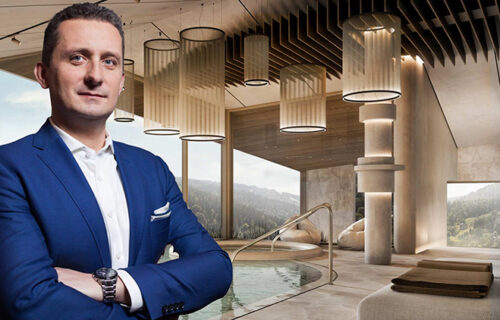The definition of luxury living in Europe is being redefined. Marble floors and infinity pools no longer set the standard; today’s high-end buyers expect intelligent systems that anticipate their needs, wellness spaces that promote health, and sustainable architecture that blends seamlessly with nature. Yet while artificial intelligence, wellness, and sustainability dominate the conversation, experts say much of this transformation remains in progress rather than fully realised.
According to Marshall Real Estate, led by Managing Partner Tomasz Kozioł, the pandemic permanently reshaped buyer priorities. Luxury now extends beyond size or location to include comfort, technology, and personal well-being. “Square metres and location still matter, but quality of life, health, and technology have become the real currency of luxury,” Kozioł explained.
Technology is at the centre of this shift. Across Europe, premium properties increasingly feature advanced smart home ecosystems capable of managing lighting, air conditioning, and security. Some go further, integrating AI “concierge” systems that learn residents’ habits, predict needs, and handle everyday tasks. While these innovations reflect a growing market, analysts note that most AI concierge systems remain semi-automated and supported by human management, not yet the self-learning assistants often described in marketing.
Wellness has also moved from luxury to necessity. The Global Wellness Institute reports that wellness real estate has grown into a $438 billion market, fuelled by demand for homes that promote health and longevity. Private spas, home gyms, and biophilic designs that incorporate sunlight, greenery, and natural materials are now standard expectations. Kozioł said that buyers increasingly want “homes that actively support their health, not just look beautiful,” a trend visible in Poland’s resort destinations.
Sustainability is equally integral to the modern definition of luxury. Photovoltaic systems, rainwater recovery, and intelligent energy management are now central features rather than optional extras. Developers are embracing ESG principles to attract environmentally conscious investors, aligning high-end housing with Europe’s broader climate goals.
Hybrid work has transformed living arrangements as well. Premium buyers favour adaptable interiors with movable partitions, convertible furniture, and multi-functional rooms that shift easily between office, gym, and entertainment space. Though still rare in traditional developments, this flexibility reflects a growing preference for homes that evolve with their owners’ lifestyles.
Personalisation remains the ultimate hallmark of luxury. Across Western Europe, technology allows for tailored environments — climate zones adjusted to individual comfort, smart mirrors displaying personal health data, and AI-linked systems that adapt to user routines. Yet these advanced integrations remain niche, limited to the uppermost tier of buyers. In markets like Poland, craftsmanship and bespoke service still define the premium experience.
Marshall Real Estate’s own data underscores this evolution. Since its founding in 2020, the firm has brokered over PLN 430 million in transactions, much of it concentrated in Poland’s resort regions. Kozioł sees a shift toward “smart wellness retreats” — properties that combine seclusion, sustainability, and digital convenience.
Industry analysts share cautious optimism. Reports from Markets & Markets suggest that Europe’s luxury housing sector is steadily adopting intelligent technology but remains years away from universal implementation. “Europe’s premium real estate is unquestionably evolving,” the firm notes, “but widespread adoption of fully self-managing homes will take time — not every buyer wants their property to think for them.”
For now, the future of the premium segment lies in harmony between timeless materials, high-quality locations, and intelligent systems that enhance daily life rather than replace it. As Kozioł concludes, “People no longer want to live surrounded by luxury — they want to live intelligently, sustainably, and well.”
Author: Tomasz Kozioł, managing partner at Marshall Real Estate
